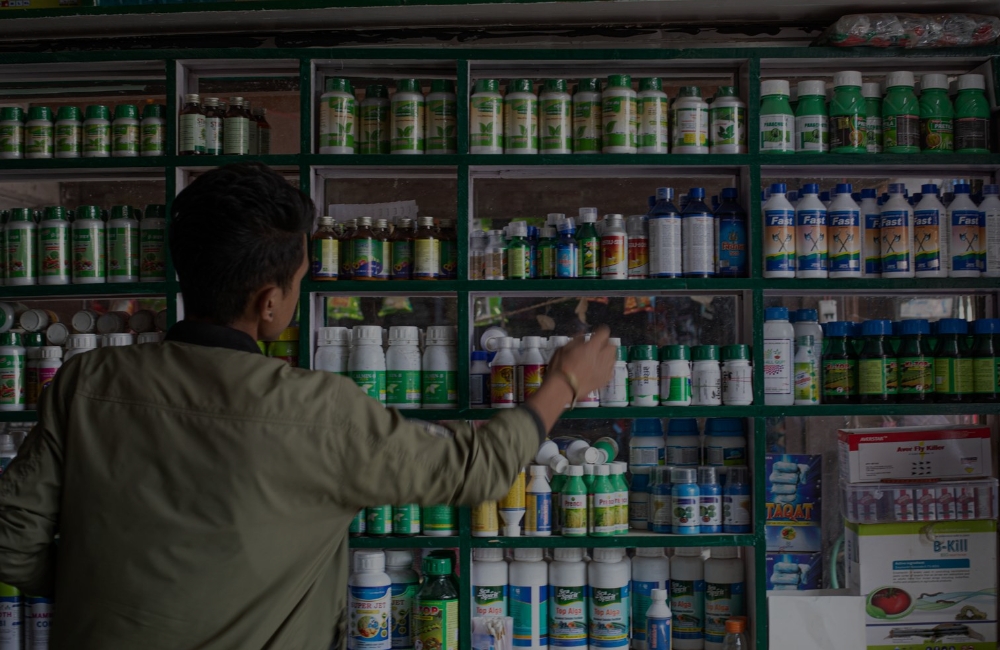BLOG: Professor Michael Eddleston explores the double standard that has long existed in the export of lethal pesticides from the European Union to the Global South.

Two weeks ago, Belgium announced it would stop exporting pesticides that are already banned for use within the country.
For those of us who are part of the global pesticide community, advocating against the use of harmful chemicals, this was a real cause for celebration.
A double standard
There has long been a double standard in the European Union regarding the trade of pesticides. Over the years, the EU has banned dozens of highly hazardous pesticides, to protect the environment and the health of its people.
However, these dangerous pesticides continue to be manufactured in the EU and exported to countries in the Global South, where bans are not yet in place. EU pesticide manufacturers are therefore continuing to profit at the expense of some of the world’s most vulnerable communities.
The people most at risk from this toxic trade are those living in rural, farming communities in low and middle-income countries, such as South Asia. These countries rely heavily on agriculture and pesticide usage is extremely high. While some pesticides may be manufactured locally, a huge amount is imported from elsewhere, including the EU.
Risk to human health
There is a good reason why these pesticides are banned in the EU. While all pesticides are toxic, some are so dangerous that exposure to just a small amount is enough to cause serious harm to human health. They can also have a significant impact on wildlife and the environment.
The risk is heightened in rural communities in the Global South – areas that tend to have high levels of poverty. Here, acutely toxic pesticides are often sold in local shops without controls and then stored in homes and gardens.
Because of this easy access, it is not just farm-workers who are at risk, their families and other members of the community can easily become exposed to these deadly chemicals. Every year, there are an estimated 385 million cases of acute pesticide poisoning. This results in around 11,000 deaths from accidental poisoning and 150,000 deaths from self-poisoning.
Taking responsibility
It is the role of national pesticide regulators to control which pesticides are used within the country. However, while countries in the Global North tend to have large teams of regulators, low and middle-income countries do not have the same resource. This can often fall to just one or two people.
For this reason, it is imperative that high-income countries take action and shoulder some of the responsibility. Economic interests should never come before the health of the world’s most vulnerable people.
Belgium has set an example that we hope other countries in the EU will soon follow. The EU itself has recently launched a consultation on this issue, seeking input on an initiative to prohibit the production for export of hazardous chemicals that are banned in the EU.
If this initiative is passed, it will be a major leap forward, stopping all 27 countries from exporting pesticides they deem too dangerous for use by their own citizens. This has the potential to improve the health and wellbeing of millions of people across the globe.
No need for deadly pesticides
However, the positive effects of similar export bans have been side-stepped before, with production moved from the EU with its high regulatory standards to factories established in low and middle-income countries with less rigorous standards. As a result, harms are simply transferred from rich countries to poorer countries.
It is therefore imperative that these decisions result in the banned pesticides not being manufactured at all – for the benefit of the world’s people. After all, with safer, alternative methods of crop production available, there is no need for these deadly pesticides to exist.

Director, Centre for Pesticide Suicide Prevention
Michael Eddleston is Professor of Clinical Toxicology at the University of Edinburgh. He has worked on pesticide suicides for more than twenty years.

